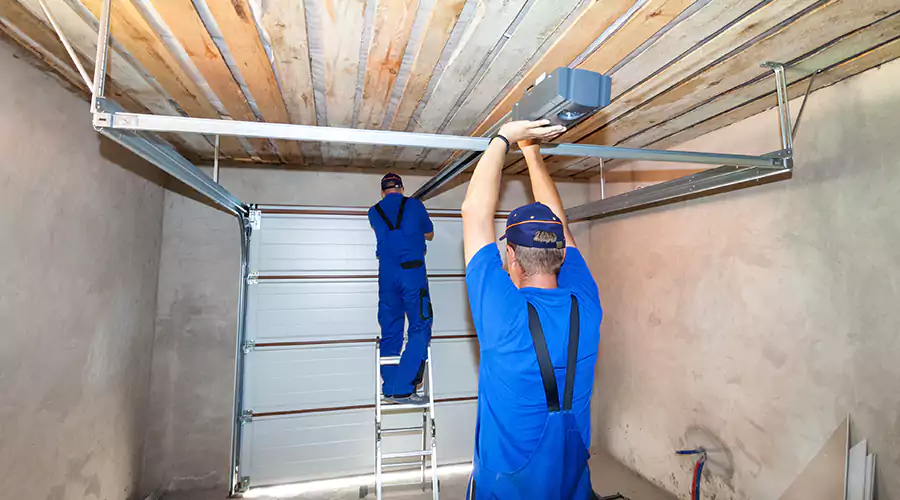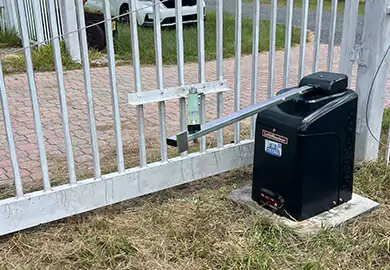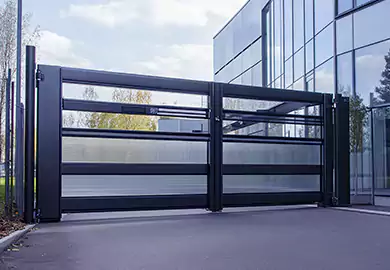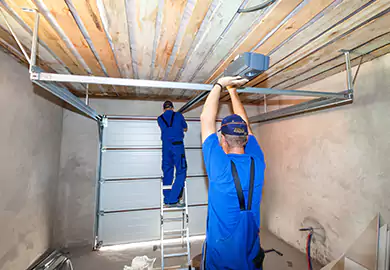
20 Oct, 2025
My electric gate starts to open but stops halfway, sometimes even closing again before it’s fully open. It won’t complete a full cycle. What could be causing this, and is there anything I can do before calling for repair?

Answerd by:
Miami, FL
Expert Answer from a Garage Door and Electric Gate Repair Technician
That’s a great question — and one we get a lot from homeowners across the Coachella Valley.
When your garage door or electric gate stops midway, it’s not necessarily broken — it’s reacting to a safety or operational issue. These systems are built with smart sensors and overload protection that automatically stop movement when they detect resistance, obstruction, or an electrical fault.
In simple terms, your system is trying to protect itself. Let’s walk through why it happens, what causes it, and how you can fix it safely.
Understanding Why Garage Doors and Electric Gates Stop Midway
One of the most common reasons for this problem is mechanical resistance. That means your motor feels like it’s pushing against something — even if you can’t see it. A small rock, twig, or buildup of desert dust in the track can make the system think there’s an obstacle.
Your system could also be reacting to dirty or misaligned safety sensors. Both garage doors and electric gates rely on infrared sensors to prevent accidents. When dust or cobwebs block the signal, the system can stop midway or even reverse direction.
Finally, there could be an electrical issue — such as a weak power supply, faulty wiring, or a worn-out motor capacitor. In desert environments like, extreme heat and fine dust can corrode or overheat these components, causing your gate or garage door to behave erratically.
How the Climate Impacts Garage Door and Electric Gate Performance?
If you live in, the local climate is a big factor. The desert’s hot, dry conditions cause metal parts to expand during the day and contract at night, which adds friction to the system.
Dust and sandstorms are another culprit. Fine grit can settle into the tracks, rollers, and motor housing. Over time, this buildup creates drag and interferes with sensors.
Add in the intense sun, and you’ve got heat that can shorten the life of your opener’s motor or circuit board. These combined conditions make garage doors and electric gates more likely to stop midway if not serviced regularly.
Professional Garage Door and Electric Gate Repair: How Experts Fix Midway Stoppage Issues?
When our technicians arrive for a garage door or electric gate repair, the first thing we do is a manual operation test. We disconnect the motor and move the gate or door by hand. If it feels heavy, sticky, or uneven, that tells us there’s a mechanical blockage.
We then clean the entire track, lubricate all hinges, rollers, and moving parts, and make sure everything runs smoothly. After that, we move on to the safety sensors, wiping them clean and realigning them so the infrared beam functions properly.
Next, we test the electrical components. We check voltage, wiring, and the motor capacitor, and look for signs of overheating or corrosion. If needed, we repair or replace those parts. Lastly, we recalibrate the limit switches — these tell the system exactly where to stop when opening and closing. Once they’re adjusted correctly, your system will complete a full cycle again without hesitation.
DIY Troubleshooting for Garage Door and Electric Gate Systems That Stop Midway
Before calling for professional service, you can safely try a few simple steps at home.
Start by checking the tracks or hinges. Make sure there’s nothing blocking the path — even small debris can stop your system.
Next, switch the opener to manual mode (most systems have a release lever). Try opening the door or gate by hand. If it’s hard to move or makes noise, the problem is mechanical. Apply a silicone-based lubricant to the hinges, rollers, and chains — avoid oil-based products that attract dust.
Then, clean your sensors with a soft cloth and make sure they’re aligned properly. A beam that’s slightly off or covered in dirt can cause the gate to stop mid-movement.
Finally, check your power source. Make sure your circuit breaker hasn’t tripped and, if you use solar power, that the panels are clean and charging properly.
If your system still stops midway after these checks, stop running it — repeated strain can damage the motor. It’s best to have a professional take a look.
Preventing Future Garage Door and Electric Gate Problems
Preventative maintenance is the best way to avoid future issues. In’s dusty climate, try to clean the tracks and sensors once a month and lubricate moving parts every few months.
If your opener or gate motor sits in direct sunlight, consider installing a shade cover to protect it from overheating. And once a year, schedule a professional inspection. A certified technician can check electrical connections, test the motor, and catch small issues before they become major repairs.
Regular maintenance keeps your system quieter, faster, and safer — and it extends the lifespan of your equipment.
Frequently Asked Questions About Garage Door and Electric Gate Repair When Systems Stop Midway
That’s your system’s safety feature working correctly. It detects resistance — usually caused by dirt, friction, or misaligned sensors — and automatically stops to prevent damage.
You can try cleaning sensors, removing debris, and checking for power issues. But if it continues, you should call a professional. Electrical or mechanical problems inside the motor aren’t safe for DIY repair.
The desert environment plays a big role. Dust, sand, and extreme heat all affect the moving and electrical parts of your gate or door, making them more likely to stop midway until cleaned or recalibrated.
Final Expert Advice: Keeping Your Garage Door and Electric Gate Running Smoothly
When your garage door or electric gate stops midway, don’t panic — it’s your system doing its job. Most of the time, the cause is simple: dust buildup, friction, or sensor misalignment.
Start with basic cleaning and checks, but if it keeps happening, call a professional. Forcing the motor can lead to expensive damage.
With regular cleaning, lubrication, and yearly tune-ups, your garage door and electric gate system will run smoothly, safely, and reliably — even in the toughest conditions.




